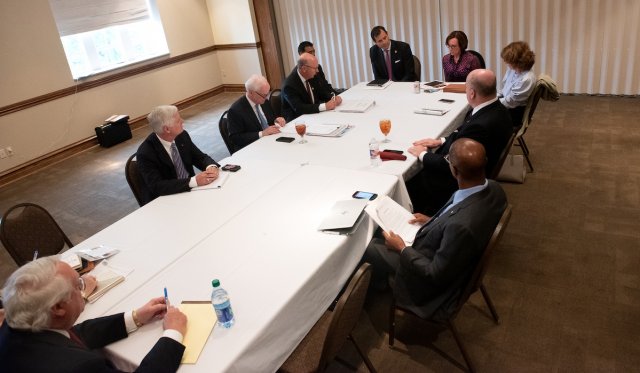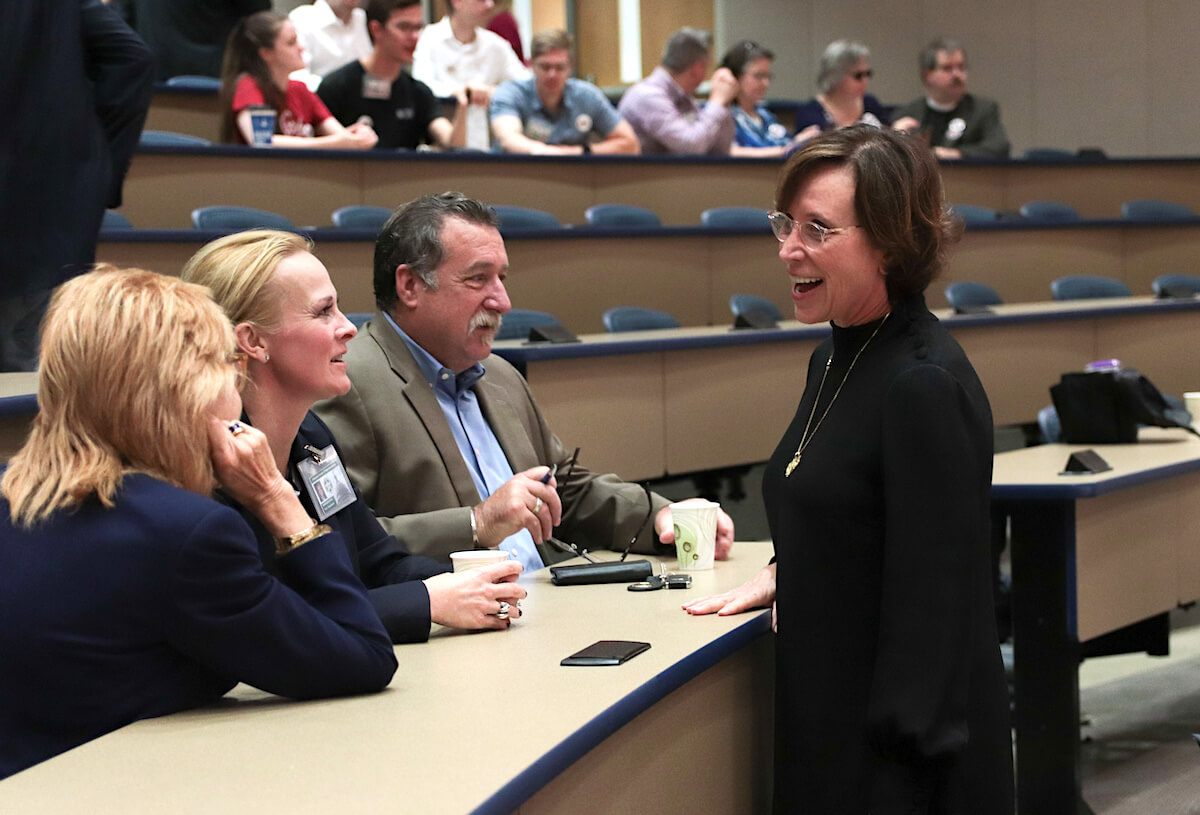
Oklahoma House Speaker Charles McCall announced this morning that he has instructed committee leaders to provide additional agency oversight by tracking, monitoring and even sitting in on the executive sessions of nearly 200 state governing boards.
“The Legislature has been too deferential and hands-off with these governing boards for most of state history, and the House is going to change that,” said McCall (R-Atoka) in a release. “Citizens want more oversight of government, and we are continuing to deliver it. The House is continuing to build on the oversight efforts we have made in the past three years. This time, we are rolling up our sleeves, getting out of the Capitol and visiting agency governing boards ourselves to inform our policymaking. This work will occur year-round — regardless of whether the Legislature is in session.”
McCall’s announcement comes on the heels of House Appropriations and Budget Education Subcommittee Chairman Mark McBride (R-Moore) and Vice Chairwoman Toni Hasenbeck (R-Elgin) attending an OU Board of Regents meeting Sept. 11 and announcing their intent to visit other of the state’s numerous university boards of regents.
“It is really important to attend meetings to meet statutory obligations as well as to be aware of the issues and complications our agencies are trying to solve for the people of Oklahoma,” Hasenbeck told NonDoc directly.

Lawmakers to sit in on executive sessions of agency boards
While McBride and Hasenbeck did not crash the OU Board of Regents’ Sept. 11 executive session that featured discussion of 11 lawsuits currently facing the university, McCall emphasized in his announcement Friday that House members will be prepared to invoke a rarely-used component of the Open Meeting Act that allows lawmakers access to board conversations otherwise closed to the public.
Title 25, Section 310 of state statute reads:
Any member of the Legislature appointed as a member of a committee of either house of the Legislature or joint committee thereof shall be permitted to attend any executive session authorized by the Oklahoma Open Meeting Act of any state agency, board or commission whenever the jurisdiction of such committee includes the actions of the public body involved.
McCall said the provision has been a part of the Open Meeting Act since its passage in 1977 and that lawmakers will be making sure boards use executive sessions properly and in a limited fashion. He said legislators will also be watching how governing boards choose to use state appropriations.
“This is an important oversight component of the Open Meeting Act that we intend to start using,” McCall said. “There are legitimate reasons for executive sessions, but when they are used for the wrong reasons, it is to the detriment of Oklahoma citizens.”
In July, Rep. Sheila Dills (R-Tulsa) invoked the provision to attend an Oklahoma State Board of Education executive session where board members were briefed on the ongoing investigation into Epic Charter Schools.
“I’m very interested in what is taking place with the state department and current events,” Dills told the Tulsa World at the time. “I want to have a positive working relationship with them. There were agenda items that I had an interest in. I feel like it is part of my responsibility and especially since I serve on the Common Education Committee to know exactly what is going on.”
Under the Open Meeting Act, agency governing boards are permitted to remove the public from their meetings for executive sessions to discuss employment considerations, employment negotiations, purchasing property, lawsuits, legal matters and other situations where disclosure of information could violate state or federal law.
McCall said House members will prefer to maintain confidentiality of the items they hear discussed during boards’ executive sessions.
“House members will not be able to publicly share information discussed in those sessions if it is confidential information,” he said. “However, if a representative observes something truly egregious, we will not hesitate to exercise our constitutional authority and independence as the situation warrants.”
McCall said the House’s agency oversight effort fits philosophically with other recent actions, including the creation of a new legislative budget office last session.
“Ultimately, we see this as a partnership to foster better communication and cooperation between elected officials and agencies that results in a more functional government for Oklahomans,” McCall said.
Oklahoma has almost 200 boards and commissions that govern state agencies, McCall said in his release.
(Correction: This story was updated at 12:23 p.m. Friday, Oct. 18, to correct reference to the chairperson titles of McBride and Hasenbeck. NonDoc regrets the error.)





















